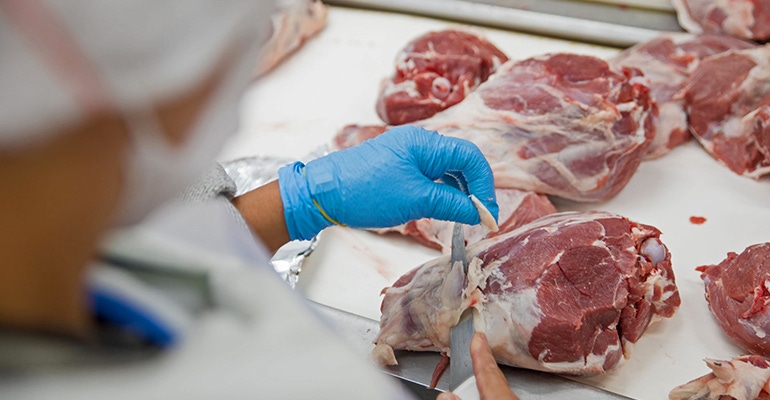Each day at 5 p.m. we collect the five top food and supplement headlines of the day, making it easy for you to catch up on today's most important natural products industry news.
October 28, 2021

COVID-19 infections and deaths at meatpacking plants much higher than previously thought
What's clear in hindsight is that meatpacking plants were major COVID-19 hotspots; they spread the virus in rural and suburban communities far more than in similar towns that didn't have a plant of this nature. However, Modern Farmer points out, early data was full of contradictions and it wasn't clear just how many infections and deaths resulted from the poor health and safety policy enforcement conducted at many of these facilities. The latest and most accurate research pinpoints positive COVID-19 cases in U.S. meatpacking plants at 59,000—nearly three times higher than previous estimates! At least 269 deaths of plant workers can also be attributed to COVID-19.
Amazon earnings expected to suffer as growth slows, labor costs rise
Amazon is in the midst of some pretty gnarly supply chain and staffing challenges, which will likely continue to slow down sales growth and make it harder for the company to meet demand, per The Wall Street Journal. The company's Chief Financial Officer Brian Olsavsky said in a previous earnings call that forthcoming financial performances would run into tough comparisons following 2020’s pandemic-fueled success. To help attract and retain staff, Amazon raised wages, which now average just over $18 an hour, and has handed out bonuses of $3,000 in some cases. The online retailer also recently introduced a plan to pay for the tuition of its workers.
Pthalates found in many fast foods
All the gloves, conveyor belts, packaging, wrapping and tubes that touch fast food products infuse them with a hefty dose of pthalates, reports Nourish. Pthalates easily migrate to food, and these plastic-softening chemicals can potentially lead to hormone disruption, infertility and even learning disabilities. This may be unsurprising to members of the natural products industry, but it's a concerning finding given how many U.S. consumers rely on fast food chains to feed themselves and their children. Organic and natural products also aren't immune to pthalate exposure, so brands would do well to reduce the amount of plastic in their packaging that contains these chemicals.
China hurries to burn more coal, putting climate goals at risk
China is desperate to meet its electricity needs, but the extra coal it plans to burn by itself would increase humanity’s output of planet-warming carbon dioxide by a full percentage point. Burning coal is already the world’s single biggest cause of human-driven climate change, writes The New York Times, and it's a huge contributor to China's toxic air pollution, which contributes to 1.6 million premature deaths each year. The country is expanding mines to produce 220 million metric tons a year of extra coal, a nearly 6% rise from last year; it already digs up and burns more coal than the rest of the world combined.
These charts show how California's top crops are changing
Surprisingly, widespread drought conditions in California haven't prompted farmers to choose crops that require less water to thrive. Instead, they're growing crops with better payoffs to mitigate scarce resources. Data shows a growing amount of farmers in the region are planting fewer acres of field crops, such as rice, wheat and cotton, and more tree nuts, such as almonds, pistachios and walnuts, because of the higher revenue per acre. The San Francisco Chronicle interviewed growers who have a bleak long-term outlook on their land because of the unpredictability of climate change-related water availability and drought conditions.
About the Author(s)
You May Also Like


